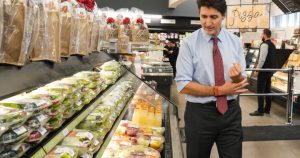Labour sets Britain on risky road to recovery
Sir Keir Starmer often compares his government’s historic Budget to a long-delayed repair job on a decaying house, with plaster and paper falling off the walls. “After it’s fixed, people will ask: ‘Why didn’t we do this years ago?’”
The simple reason is that an economic repair job featuring one of the biggest tax rises in a generation and a potentially market-spooking wave of borrowing — neither of which were flagged to voters in an election just four months ago — is a massive political risk.
For now, Starmer and his chancellor Rachel Reeves appear to have that most scarce commodity in politics: time.
“We will be judged in five years, not what the polls say at Christmas,” Starmer tells colleagues. When he talks about “a decade of renewal” Starmer hopes the Budget — which raises business taxes and pours more than expected into the NHS — will pave the way not just for a Labour election win in 2029 but perhaps even a third term. That is the vision.
With a working majority of 163 and at least four years until the election, this Budget was unusual for being strategic and focused on the long-term.
The initial reaction from Labour MPs, cheering and waving order papers with glee, suggested Reeves had lifted spirits in the short term too.
But Starmer and Reeves have taken a major gamble. While time may be on their side for now, the delivery gap between this Budget and people starting to feel its mooted long-term benefits could feel like a political eternity.
Reeves’ mantra of “invest, invest, invest” is widely seen by economists as a sensible approach given Britain’s sluggish growth and crumbling public services, provided that borrowing does not run out of control. But the economic benefits will take years to come through.
The tax rises that Reeves loaded on to employers on Wednesday — by increasing their national insurance contributions by £25bn — may not show up on voters’ payslips now, but the impact will be felt later if bosses clip pay rises or get staff to work fewer hours.
Reeves’ bet is that by the time of the next election, growth will be returning — aided by falling interest rates and stabilised public finances — and that people will be feeling the effects; they might even be able to see a doctor within a couple of weeks.
In the meantime Starmer will have to contend with the nerves of a swollen parliamentary party of more than 400 MPs, of whom at least two-thirds will be anxiously wondering if they will still have a job in four years’ time. The rhythm of council elections and by-elections will test those nerves.
The polls look ominous. Starmer, who was never that popular with voters in spite of his landslide victory on July 4, has seen what polling group More in Common has called an “unprecedented” fall in support.
The prime minister’s personal approval rating has fallen to -38, a net drop of 49 points since the election. More in Common’s Luke Tryl said: “Although they had a landslide, in terms of popularity they didn’t have the slack to spare that other new governments had.”
Starmer has been phlegmatic about this. He tells friends he is genuinely “shocked” by the state of the public finances he inherited and that he and Reeves had little choice but to take tough decisions now.
But early mistakes have unsettled the party. Reeves’ decision in July to axe winter fuel payments for 10mn pensioners may have long been on the Treasury’s wishlist of savings, but it played disastrously with core supporters.
Meanwhile, cabinet ministers concede that the four month delay between the election and the Budget — by far the longest wait by any government in recent times — created a dangerous political vacuum.
“Every vested interest in my sector believes it’s about to be clobbered,” complained one cabinet minister. Another said: “We’ve waited far too long. Too many decisions have been put on hold.”
Business leaders had urged Starmer to dial down his “doom and gloom” message about the state of the economy over the past few months, which has been accompanied by a drop in consumer and business confidence.
Meanwhile, the love-in between business and Labour — sealed over “smoked salmon and scrambled eggs” meetings before the election — is now starting to sour, as Reeves looks to employers to fill her fiscal gap.
Business leaders “are grown ups — they understand what needs to be done,” said one ally of Reeves. Starmer likes to point to the £63bn of investment pledged around the time of this month’s global investment summit as evidence that the corporate world is keeping the faith.
But the cumulation of higher taxes, higher minimum wages and a raft of new workers’ rights have stretched the patience of some. The Institute of Directors called it a “perfect storm” and others have warned that the higher costs will feed through into lower wages and fewer jobs.
Reeves published a “corporate tax road map” on Wednesday to give some assurance to business leaders, but there is no blanket guarantee that the Budget tax raid on employers will be the last.
Even Wes Streeting, health secretary, has admitted the extra cash being pumped into the NHS — including more than £22bn for day-to-day spending over two years — will only “arrest the decline” in patient services.
The health system remains a huge sponge absorbing public spending and driving UK tax levels ever-upwards towards EU levels.
The Conservatives, a battered political rump still engaged in a leadership contest, believe the Budget at least gives them a glimpse of a route back to power.
“The dishonesty is breathtaking,” said Jeremy Hunt, shadow chancellor. “Their calculation is that people will have forgotten by the next election.”
For now Reeves and Starmer are confident they are doing the right thing and they will be rewarded politically in the end. “There are no shortcuts,” Reeves told MPs on Wednesday. But the long way round remains littered with political risk.
#Labour #sets #Britain #risky #road #recovery





